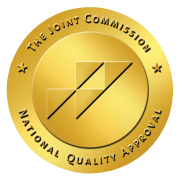Symptoms of Histrionic Personality Disorder
In the wide range of human personality, there’s a bit of a spectrum that expands from the quietly introspective to the vibrantly expressive. Somewhere along this spectrum lies a pattern of behavior that can be as bewildering as it is flamboyant: Histrionic Personality Disorder (HPD). Here we explore what it is and some of the symptoms of histrionic personality disorder.
Histrionic Disorder as Center
Histrionic Personality Disorder is like a dance performed under the bright lights of the stage, where every step, every twirl is an effort to capture and hold the gaze of the audience. It’s a condition characterized by a deep-seated need for attention, colorful and often dramatic expressions of emotion, and an ability to charm that can be as dazzling as it is disarming.
Those with HPD are the storytellers, the heart of the party, yet behind the sequins and the smiles, there’s a profound fear of being ignored or forgotten.
Histrionic Disorder Symptoms
But what does this look like in the day-to-day life of a person? Imagine someone who, even in the quietest moments, needs “more.” More color, more drama, more everything. They’re often perceived as insincere or shallow, not because they lack depth, but because their intense emotions can seem overwhelming or unfocused. Their relationships might be a carousel of highs and lows, marked by a constant search for approval and affection.
Here’s a List of Potential Symptoms of Histrionic Personality Disorder :
- Constantly Seeking Reassurance or Approval: An unyielding desire for others to acknowledge and affirm them.
- Excessive Emotionality: Demonstrating emotions that are exaggerated and often rapidly shifting, more theatrical than genuine.
- Inappropriately Seductive or Provocative Behavior: Engaging in behaviors or appearances that are designed to draw attention, often in sexually suggestive ways, regardless of the appropriateness of the context.
- Overly Concerned with Physical Appearance: A preoccupation with looks and perceived attractiveness, often to the point of obsessiveness, believing that physical appearance is their key to being noticed.
- Perceiving Relationships as More Intimate Than They Are: Misinterpreting or exaggerating the depth of relationships, thinking of acquaintances as “best friends” or describing casual interactions as deeply meaningful.
- Highly Suggestible: Easily influenced by others or by current trends, showing a low threshold for conformity under social pressure or persuasion.
- Difficulty Achieving Emotional Intimacy: Despite a flamboyant and open demeanor, there’s often a shallow emotional experience and a struggle to form genuine, deep emotional connections.
- Use of Physical Appearance to Draw Attention to Self: This can include dressing provocatively or exhibiting behaviors specifically designed to make themselves the center of attention.
- Dramatic, Theatrical Speech: Expressing emotions in an exaggerated fashion, with speech that lacks detail and is more geared towards creating an impression than conveying facts.
- Easily Frustrated by Lack of Attention: Demonstrating irritability or discomfort when they are not the center of attention or when others are receiving recognition.
- Manipulative Behavior to Meet Own Needs: Utilizing emotional manipulation or dramatic flair to influence the behavior of others to serve their own needs or desires.
How Can You Tell if Someone Has Histrionic Personality Disorder?
Can you test for HPD? Unlike checking for a fever with a thermometer, understanding HPD involves a more nuanced approach. Mental health professionals use criteria outlined by the DSM-5 (Diagnostic and Statistical Manual of Mental Disorders, Fifth Edition) to diagnose HPD, relying on a combination of interviews, observations, and sometimes psychological testing to paint a comprehensive picture of a person’s emotional landscape.
Now, you might wonder, is there a crossover with narcissism? Yes and no. While both HPD and Narcissistic Personality Disorder thrive on the sunlight of attention, they bask in it for different reasons. The narcissist seeks admiration to feed their grandiose self-view, while the histrionic seeks validation of their worth and existence.
It’s like comparing two different flowers in the garden of personality disorders; both need the sun, but they bloom in their own unique ways.
Treating Symptoms of Histrionic Personality Disorder
Can HPD be treated? The answer is a hopeful yes. Treatment is a path walked together with a therapist, often involving psychotherapy to explore the roots of emotional expression and to develop healthier ways of relating to oneself and others. It’s about learning to see oneself not as a performer on the stage of life, needing constant applause, but as a person of worth, even in the silence.
IOP for Histrionic Personality Disorder
This is where an Intensive Outpatient Program (IOP) for mental health can be quite effective. An IOP offers a structured yet flexible environment where individuals can engage in therapy while continuing with their daily lives. For someone with HPD, it offers a space to explore their emotions, understand their need for attention, and learn healthier ways to seek connection and validation. It’s a journey from seeking the spotlight to finding the light within, from performing for love to being loved for who they are.
In the end, Histrionic Personality Disorder is not a label to be feared or shunned. It’s a call to understand, to empathize, and to support. It’s about helping individuals find their true colors, not just the bright ones they wear for the world to see.
In the heart of someone with HPD lies a deep need for connection, a yearning to be seen and loved for who they truly are. And in this journey of understanding and healing, there’s a place for all of us to offer compassion, support, and a listening ear. After all, isn’t that what being human is all about?
Do you have more questions about HPD and how to treat it? Call Lido Wellness today. Our team of professionals are ready to offer insight and a potential path for treatment. Call: 949-541-8466.




